Interest Free Financing Up To 36 Months
WE DO NOT ONLY PUMP YOUR TANK - WE CLEAN IT!
Multiple Financing Options Are Available Up To 36 Months
Interest Free Financing Up To 36 Months
WE DO NOT ONLY PUMP YOUR TANK - WE CLEAN IT!
Multiple Financing Options Are Available Up To 36 Months
You might be able to hold off or prevent clogs, but you’ll end up dealing with one sooner or later. Many homeowners like to use liquid drain cleaners to quickly unclog the drain and fix the problem. From the surface, it might look like it’s doing wonders, however, it may be damaging your pipes and septic system, eventually calling for a septic tank repair.
How Drano Affects Your Septic System
Let’s look at a review of how the septic system works. While working appropriately, the microorganisms in a home's septic system separate the solids in your septic tank, decreasing the amount of waste that settles to the base. Fluids ascend to the top prior to leaving through an outlet that will take them to the drain field, where the waste will be cleaned and reabsorbed into the water table. The bacteria in your septic system are necessary for separating the solids, slowing the buildup of waste at the bottom of the septic tank. Pouring Drano down the drain can cause the Drano to eliminate those helpful bacteria as well. Without the bacteria breaking down any solid substances, the tank will fill up faster, which will require more frequent septic tank pumping. A higher collection of sludge can mean destroying things for your septic system, regardless of whether by making sewage back up into your home or solids leading to the drain field.
Since septic systems need bacteria to keep working accurately, you ought to be aware of what you put down your drain. Drano's makers guarantee that this item is suitable and helpful for your septic system, however, most specialists aren't completely certain. Drano contains bleach, aluminum, and salt. Those substances certainly help in clearing out a clog, but they can also harm your bacteria. Why not just find a simpler and less damaging way to remove clogs instead? You can try consulting with your septic company for advice or browse the internet. Septic Blue of Raleigh will be more than happy to help with anything, whether it be a septic tank repair, septic tank pumping, or simply just giving out advice on how to properly maintain your septic system.
There are other ways to unclog your drain without having to use Drano and are damage-free. You can call a septic company to ask for help from a professional as well. Boiling water can help out in clearing minor clogs in your drain that include soap and grease buildup. If there is a larger blockage in the drain that you are able to see, you can try and physically remove it with a plunger or wand and dislodge the clog. The combination of vinegar and baking soda is also a good way to clear out your drain. Pour baking soda followed by vinegar down your drain and let it sit for about 30 minutes, then wash it out with hot water. These methods are simple and can be done quickly at home. If there are still clogs after you’ve tried these, call a professional to come to help you out.
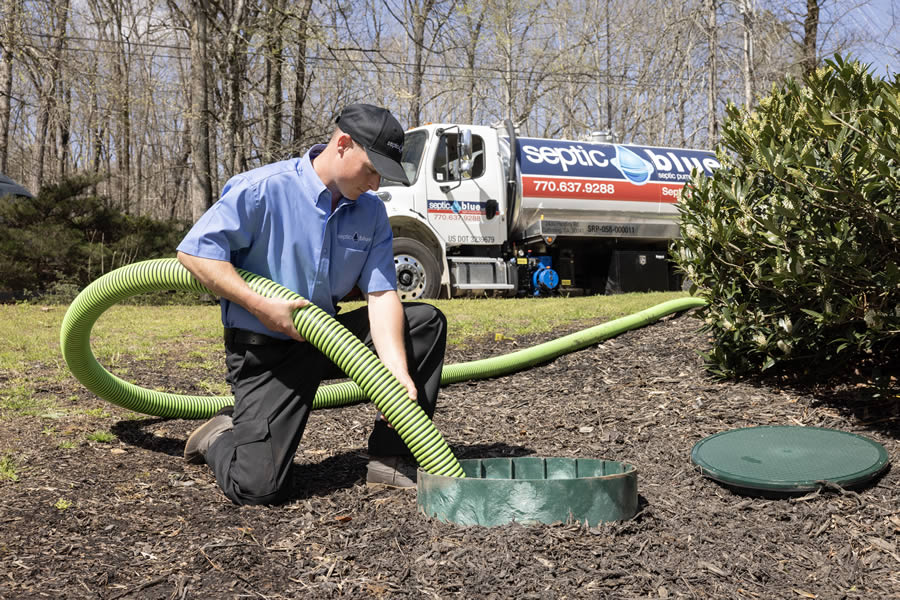
Septic tank pumping in Raleigh has never been so affordable and accessible thanks to the professionals at Septic Blue. We are…
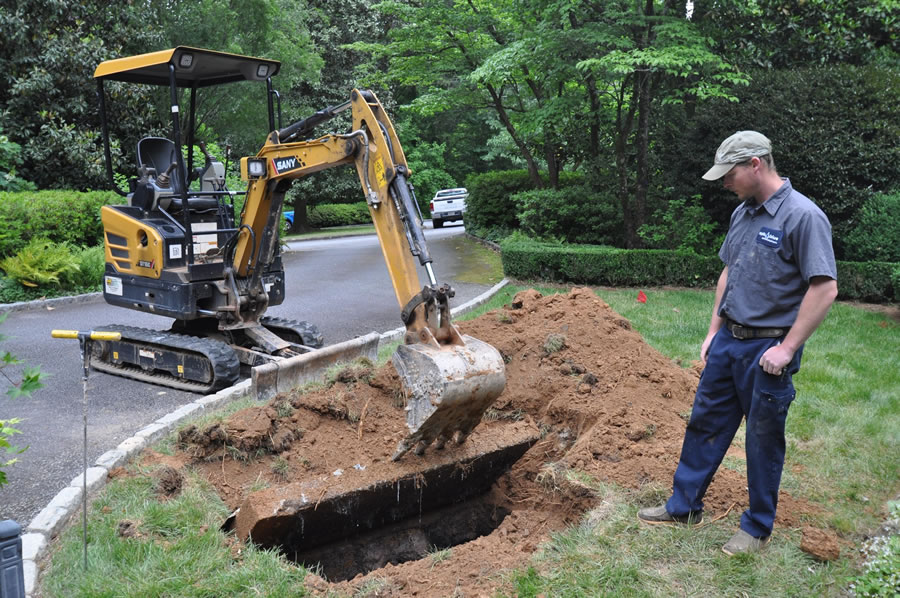
One quarter of Americans rely on septic tanks to process household waste. Most Septic Blue locations have septic tank experts who…
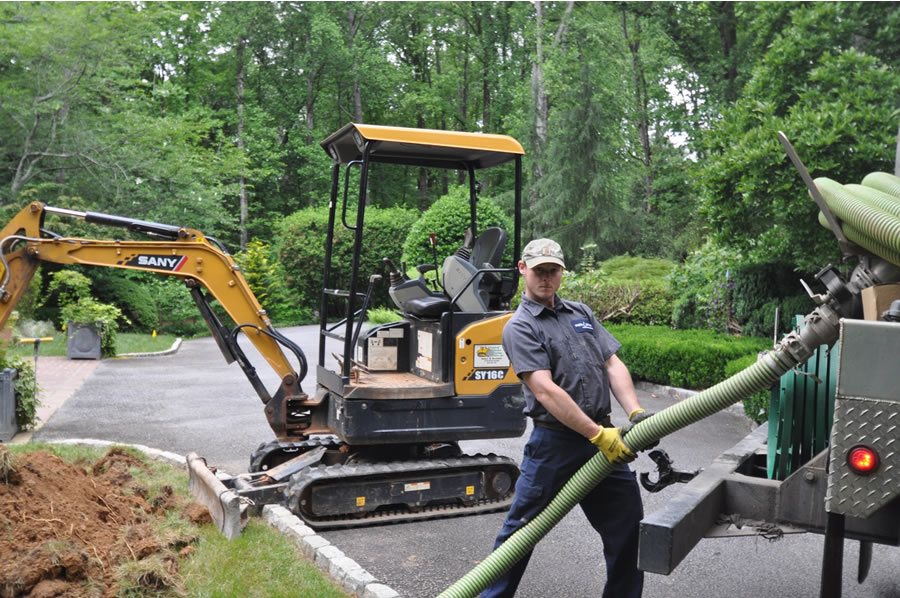
Call Septic Blue today for a second opinion. If you choose to go with Septic Blue, you'll receive $250 off your…
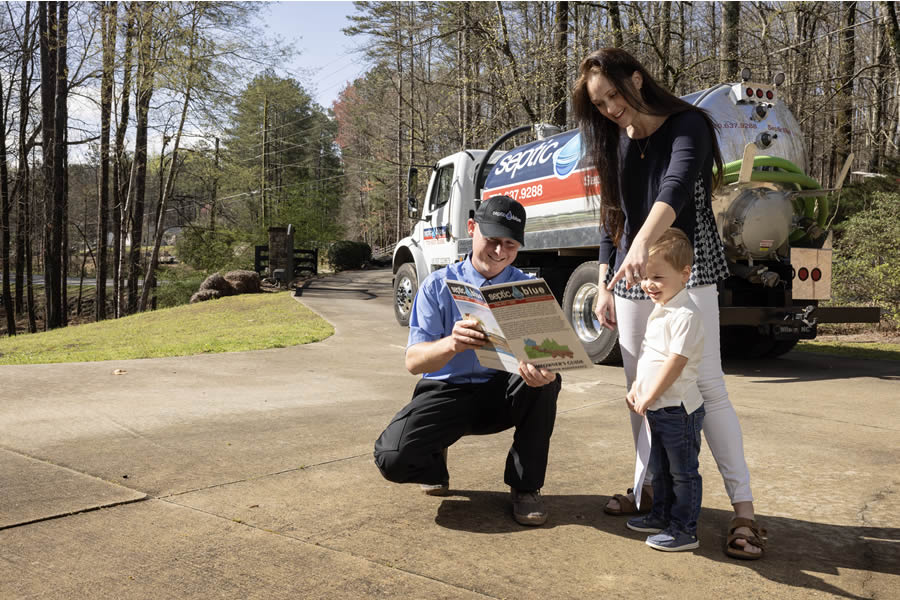
If you are a homeowner or resident in Raleigh that is among the 20 percent of households in the U.S. with…
Professional Saptic Plumbing solutions for every need. Contact Us Today!
Remember to take great care of your septic system. Avoid pouring fat and grease down the drain, have your system inspected regularly, and clean out your tank every 3-5 years, or whenever it has reached its maximum capacity. Refrain from using chemicals as your first solution for clogs. Instead, try out simple and safer ways to clean out your drain.
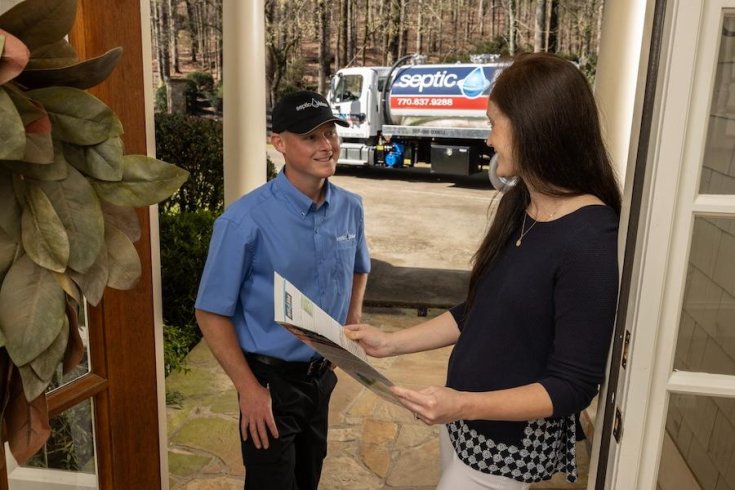
Hiring a septic company in Raleigh, NC involves more than comparing prices or scheduling the earliest appointment. Septic pumping, cleaning,…
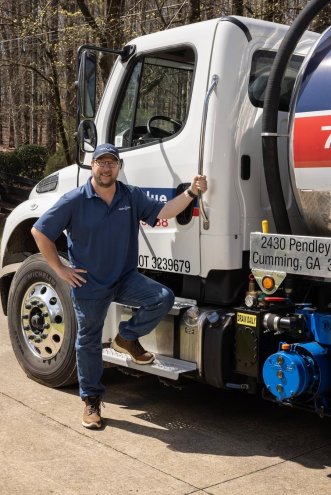
A septic system is designed to move wastewater efficiently from your home into a tank and then into the drain field.…
.webp)
Even if it often fades into the background of daily life, a septic system plays a critical role in keeping your…
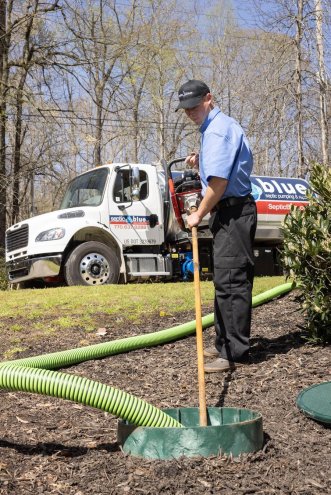
Septic systems play a critical role in protecting your home, health, and surrounding environment. Unfortunately, they're often misunderstood as systems that…